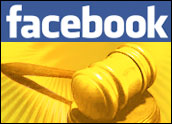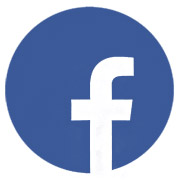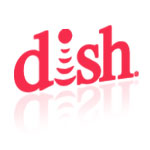
2014 may be the year when tablets muscle into dominance in the computer marketplace.
Next year, tablets will account for almost 50 percent of total client personal computer shipments globally, according to estimates by Canalys. Desktops, notebooks and tablets having a diagonal screen size of at least 7 inches are categorized as PCs.
285 Million Units
A 50 percent market share for tablets will equate to around 285 million units shipped in 2014. By 2017, that figure will soar to 396 million devices, the firm predicted.
Tablets running the Android operating system are likely to lead the way, accounting for 65 percent of all shipped tablets (approximately 185 million units). Samsung will be the driving force.
Samsung’s broad range of tablets has been a key factor in its year-on-year growth, Canalys noted, with a 27 percent share of Android tablet shipments in Q3 2013. However, with hundreds of manufacturers building tablets — from small vendors in both established and high-growth markets to major players like Acer and HP — Samsung’s market share is likely to start dipping.
Samsung Shift
“Android numbers continue to grow, but the report does not anticipate Samsung efforts to move off of Android in terms of forecast,” Rob Enderle, principal analyst at the Enderle Group, told the E-Commerce Times. “Nor does it consider profitability, which is poor on the platform, suggesting other firms may also withdraw if they can not find profit — particularly with Google doing more and more of their own hardware.”
Apple, meanwhile, will remain as the single largest tablet brand, with a 30 percent market share, as well as the one that’s most profitable. The company has managed to stabilize its desktop and notebook businesses, though its focus on protecting its gross margins will lead to a decline in its PC market share, Canalys said.
Profit is a bigger priority for Apple than market share, it suggested.
Losing Ground
Indeed, Samsung overtook Apple in PC market share in the EMEA (Europe, Middle East, and Africa) region this quarter.
“Tablets have been the fastest-growing endpoint type since their introduction — faster even than the smartphone,” Roger L. Kay, principal analyst for Endpoint Technologies Associates, told the E-Commerce Times.
“Apple was dominant even after Android started making inroads in smartphones, but now Android is doing the same thing in tablets that it did in smartphones,” he noted.
“I expect that the rivalry between Apple and Samsung will continue to be white hot and increasingly bitter,” Laura DiDio, principal of ITIC, told the E-Commerce Times. “I also expect relations between Apple and the rest of the Android competitors and former friends like Google will be frosty.”
Microsoft Share
While Microsoft is predicted to take just a 5 percent market share in 2014 (up from 2 percent in 2012), the acquisition of Nokia will push it toward becoming a full-fledged vendor of smart mobile devices, Canalys suggested.
Yet the company may need to address the dual smart device operating systems of Windows Phone and Windows RT. Having three operating systems is confusing for consumers and developers, Canalys argued. Meanwhile, Microsoft may need to find ways of encouraging app development to boost the mobile ecosystem.
“Microsoft has indicated they will be cutting the number of OSes they have, which would be consistent with this report,” Enderle said.
“They are fighting ecosystems that already have critical mass and growing momentum,” Jim McGregor, principal analyst at Tirias Research, told the E-Commerce Times. “This is another case of Microsoft missing a major market inflection point, just as it did with handsets.
Market Fragmentation
Elsewhere, price competition is likely to cause further fragmentation. Though major brands like Acer, Asus, HP and Lenovo have entry-level, sub-US$150 products, they may struggle to compete with local companies.
Nextbook in the U.S., and Onda and Teclast in China are examples of firms that ship more units than some major vendors in their home countries, Canalys indicated.
Manufacturer Consolidation
Such a fractured market could lead to consolidation elsewhere. BlackBerry and Barnes & Noble, for instance, have reconsidered their place in the market. Next year is likely to bring mergers, acquisitions and failures, with hardware makers struggling both to sustain desktops and notebooks and to gain a foothold in the tablet market.
“We all have heard over the last year or two that tablet sales are soaring and PC sales are slipping. This report puts some numbers behind that realization,” telecommunications analyst Jeff Kagan told the E-Commerce Times.
“The tablet form factor is growing. It will continue to proliferate in size and features,” Tirias Research’s McGregor offered.
“I would even argue that many of the convertibles or other PC form factors are really tablets,” he said. “In any case, this bodes well for the leaders in the tablet space and growth for those that can enter into a niche and growing segment or geography. Look for the emergence of the Chinese vendors, just as we have seen them in PCs and smartphones over the past two years.”






















































Social Media
See all Social Media